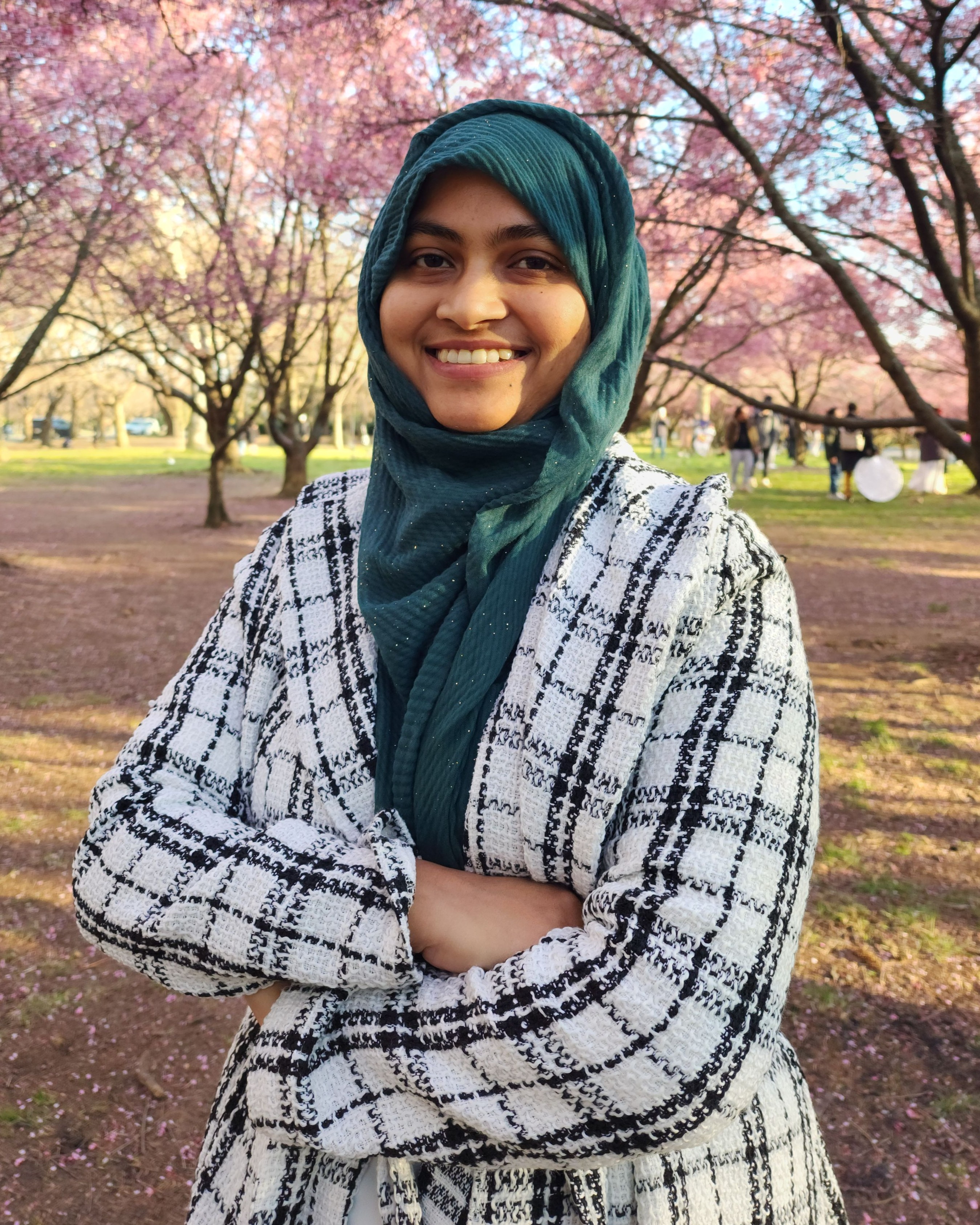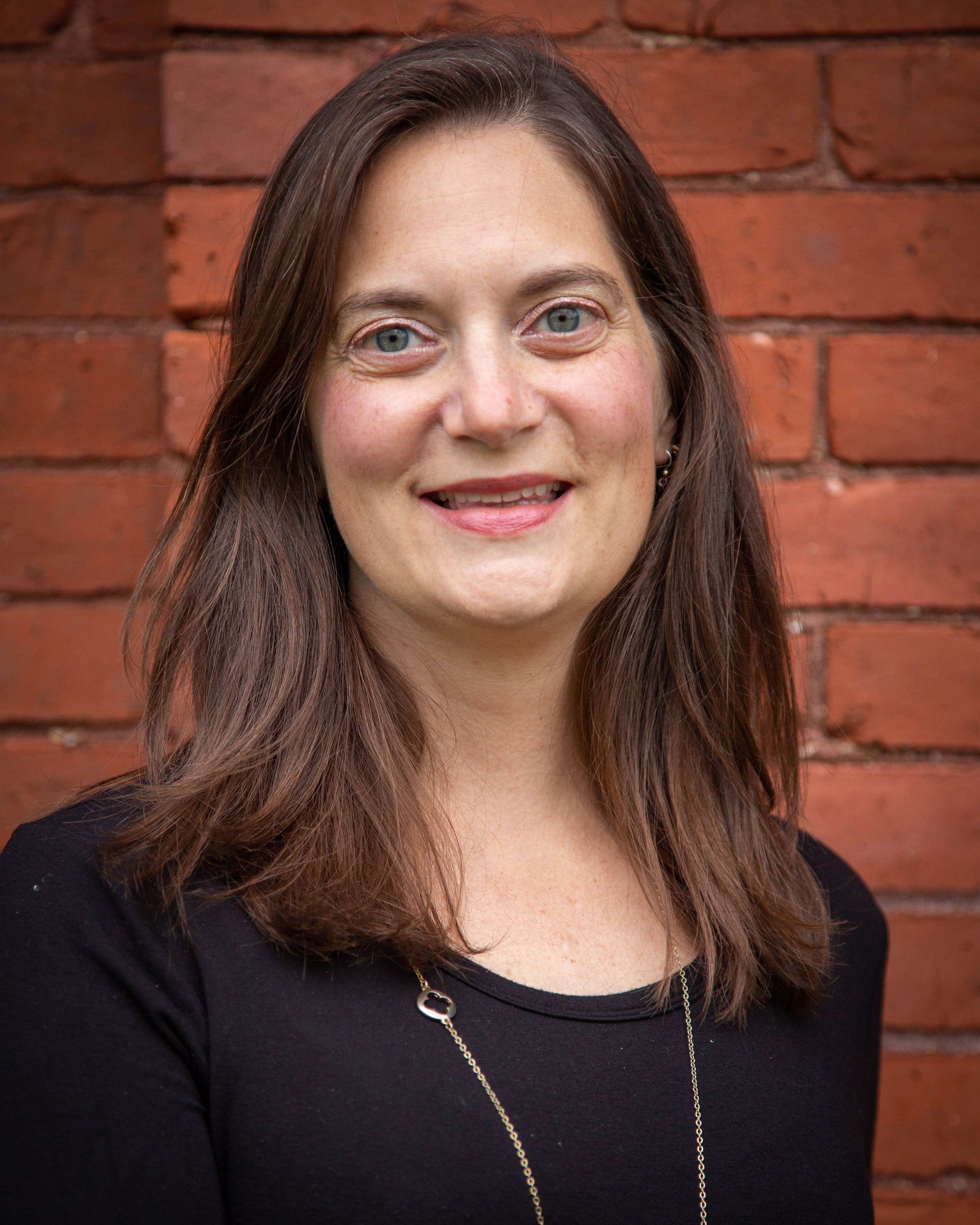Grad CareerCraft
Event Description
|
Masuda Akther is a third-year graduate student in the Cellular and Molecular Pharmacology program, currently conducting research in Dr. Alexander Valvezan's lab at the Center for Advanced Biotechnology and Medicine (CABM). With a strong interest in translational studies, she has focused her research career on bridging fundamental science and clinical applications. Her current work centers on developing cancer therapeutics, specifically targeting cancer metabolism to identify new treatment strategies for patients with Tuberous Sclerosis Complex (TSC). Outside the lab, she enjoys spending time in nature, finding inspiration and balance in the outdoors. Exploiting the unique metabolism of tumor cells to develop new therapies. Mutations in the tumor-suppressor genes TSC1 and TSC2 cause Tuberous Sclerosis Complex (TSC), a genetic disorder that can lead to tumor growth, and are also linked to certain cancers. Tumors lacking TSC1or TSC2 show increased activity of mTORC1, a protein complex that drives cell growth and metabolism. Our research has revealed that TSC2-deficient cells are highly dependent on the enzyme IMPDH, which is crucial for producing guanine nucleotides—essential building blocks for DNA and RNA. Blocking IMPDH with a drug called Mizoribine, which is already approved for clinical use, creates stress on DNA replication and damages the DNA in TSC2-deficientcells, ultimately causing them to die. However, these cells can adapt to this treatment by activating pathways that repair DNA damage and manage replication stress, making them less sensitive to the drug. To overcome this resistance, we tested combining Mizoribine with drugs that block key proteins in these pathways, such as ATR, CHK1, CHK2, DNA-PK, WEE1, and ATM. Our preliminary results show that combining Mizoribine with an ATR inhibitor (AZD6738), which is being tested in cancer clinical trials, significantly increases cell death in TSC2-deficient cells compared to using Mizoribine alone. Similarly, inhibitors targeting WEE1 (AZD1775) and CHK1/CHK2 (AZD7762) also boost Mizoribine effects. These findings suggest a promising new treatment strategy: combining drugs that block DNA repair and replication stress pathways with IMPDH inhibitors to more effectively kill cancer cells lacking TSC2.
Veronica Armour is a PhD student in the Department of Library and Information Science and the Director for the Innovation, Design, & Entrepreneurship Academy at Rutgers University-New Brunswick. Her research is inspired by the pathways she has constructed as she’s navigated her career journey and her observations of the ways in which undergraduates’ career pathways are constructed and evolve while at university. Mapping Pathways: How Information Shapes Transitional Journeys My research tells the story of how and why information is used to create a pathway to support the navigation of a transitional period in an individual's life. Pathways can be constructed (think of planned or designed paths) or informal, sometimes called desire paths, that emerge as shortcuts taken by individuals when an official path does not exist or is not practical to take. This presentation will discuss how we might use a socio-material perspective to tell the story of pathways through mapping information structures to see what shapes a pathway and mapping information sources to see who is found along the way. By emphasizing the actors and relations involved in our information interactions, I expand our view of information behavior beyond the individual/cognitive perspective to encompass a community/social perspective.
|
Join us for our next Research Café on Tuesday, April 16 at 3:00 PM (via Zoom) for an inspiring session showcasing the diverse and innovative work of graduate students at Rutgers.
Exploring Community Engagement as a Pathway to Professional Growth
Event Description
This interactive virtual workshop will explore how community engagement through research, teaching, and service can enhance professional development for graduate students, especially for those interested in careers beyond academia. Participants will gain insights into how meaningful partnerships with community organizations can build transferable skills such as leadership, communication, and project management while fostering a strong sense of purpose and societal impact.
The session will feature a panel of graduate students, including the two second annual SGS Community Engagement Award winners, who have worked closely with community partners. They will share their experiences and offer practical advice on translating those engagements into valuable career skills and professional growth. Speakers will include Karen Ardizzone (Student Volunteer Engagement), Ghada Endick (Graduate Student Life), and Ramazan Gungor (School of Graduate Studies), each bringing unique institutional and personal perspectives on the role of community engagement in graduate education and career development.
One of our panelists, Rebecca Risman, a Biomedical Engineering PhD candidate and one of the SGS Community Engagement Award winners, shares:
“As a graduate student, my work has centered on the intersection of research and community engagement, particularly with biomedical engineering approaches to study blood clotting. Throughout my experience, I’ve seen how collaborating with diverse stakeholders—whether through research, education, or outreach—can develop skills that are highly transferable beyond academia. Engaging with communities has strengthened my ability to communicate complex ideas to different audiences, manage projects effectively, and work across disciplines. These experiences have also shaped my perspective on the broader impact of research and how we, as graduate students, can contribute meaningfully beyond the lab or classroom. I’m excited to be part of this discussion and share insights on how community engagement can be a valuable part of professional development.”
If you’re a graduate student curious about growing your skills and impact through community engagement or a faculty or staff member interested in supporting this work, we warmly invite you to join us for this conversation!
Designing and Delivering Effective Distance Education
Grad CareerCraft
Event Description
RAMAZAN GUNGOR, PhD.
Assistant Dean, School of Graduate Studies
Dr. Gungor will draw on his extensive experience in teaching fully online and hybrid courses, and research in distance education to provide comprehensive insights into designing and delivering effective online courses in higher education.
Topics will include:
- Key principles and best practices for online course design
- Techniques for creating engaging and interactive virtual learning environments
- Effective methods for delivering content and assessments online
- Strategies to foster student participation, collaboration, and success in online courses
Addressing challenges and overcoming obstacles in distance education

